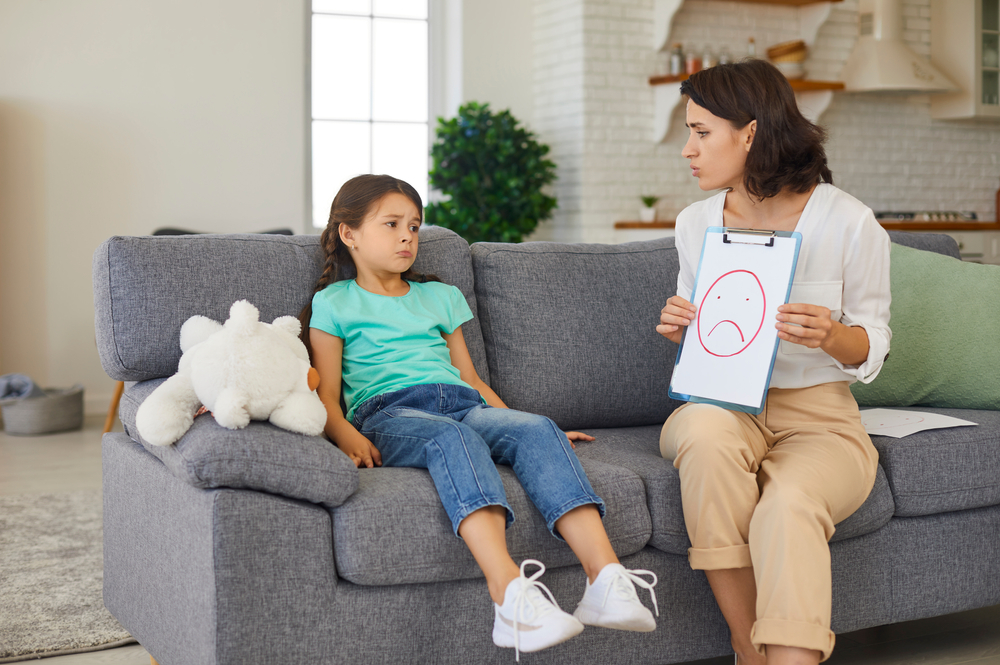The ability to recognize and express emotions is a vital part of being human. It helps us understand the world around us and how we fit into it. Emotions are also an essential part of our social lives, as they enable us to communicate with others and form relationships. Without them, life would be complicated indeed!
But unlike adults, emotional expression in children can be pretty complex. While it’s normal to get overwhelmed by intense feelings like happiness, anger, fear, or stress, some children express their emotions more intensely than others. That is, they may cry more, get angry more often, feel frustrated faster, get overly excited, etc.
So as a parent, it’s crucial to help your child cope with the intensity of their emotions. And that’s what this blog is all about. We’ll walk you through the best tips and tactics for helping children emotionally so that they can become more responsible young citizens. Let’s get started!
Actionable Tips on How to Help Your Children Cope with Their Emotions
1. Teach Your Kid About Emotions
As we’ve hinted above, teaching your child about the emotions they may experience is the first step to helping them cope with the same. For instance, you should let them understand that it’s OK to have intense feelings, but when they do, they shouldn’t act out in ways that harm or hurt those around them.
But that’s not all; you also want to teach them why some feelings are easier to manage than others. They should tell the difference between healthy and unhealthy emotions, so they can learn how to cope with them when they occur.
Reverse psychology also works like a charm. For example, naming your emotions shows your child that they’re not alone in this, and they might even end up showing empathy towards you instead of expressing their dissatisfaction. Something in the line of, “I’m sad that we can’t go visit grandma today,” or “I’m surprised that those boys were being mean to you.”
2. Provide Age-Appropriate Information
There’s no denying it; children are super curious beings, with studies finding that parents answer 73 questions on average per day. The problem arises when they lack adequate information, relying on their imaginations to satisfy their curiosity. Believe it or not, children face the risk of developing significant mental issues, like stress, anxiety, and depression, when you decide to withhold information from them.
As such, you want to make yourself available for children to ask questions and express their concerns freely. Here are a few best practices to help support that cause:
- Provide opportunities for children to access books, websites, and infotainment channels with age-appropriate content
- Provide age-appropriate info about the coronavirus and its effects
- Minimize the child’s exposure to media coverage about the pandemic
- Reassure your child about their safety
- Follow routines that provide children with a sense of safety and predictability, e.g., regular meals, defined bedtime, daily schedules (for play and learning), etc.
3. Separate Feelings from Behaviors
Feelings and behaviors are as wide apart as the East is the West. While expressing feelings is acceptable and highly encouraged, some behaviors accompanying such expressions are unacceptable. For example, you’re at a store, and you discover that the toy you’d promised to buy your child has run out of stock. At this point, they may feel sad or angry, and that’s OK. However, it turns into an intolerable behavior when the child starts screaming all over the store.
Admittedly, helping children grasp the difference between feelings and behaviors may be challenging, especially when they’re still young. But as they get older, it’s critical to teach them how to respond to uncomfortable emotions. For instance, they may be super angry at someone, but that doesn’t permit them to enter into a fight.
Additionally, you want to try using phrases like, “I know you’re mad at me, but…,” or “that was not nice.” This helps them understand that their behavior doesn’t always match what they’re feeling inside.
4. Don’t Reinforce Outbursts
How you respond to your kid’s emotions plays a massive role in helping them manage the same. You may not be aware of it, but as a parent, some actions prompt children to have emotional outbursts, so if you’re committed to helping children emotionally, be sure to avoid the following:
- Rewarding the child for cooling down. Unfortunately, this is a mistake that most adults make; offering their kids a special treat every time they calm down. It poses a risk of children learning that bursting into tears or overreacting to a cause is an easy way to get what they want.
- Calming your child down constantly. It’s OK to offer your child reassurance, especially if they express a valid emotion, like sadness, because other kids are mean to him. But don’t overdo it. Let your child learn how to calm down on their own because, after all, you won’t always be there to stand up for them.
- Showering the child with too much attention. It’s every parent’s responsibility to comfort their children. But again, don’t overdo it. Otherwise, you risk cultivating a trend where your children think getting upset is their best shot at receiving attention.
- Telling your child to stop crying. From the outlook, this seems like the right thing to do, but the fact is, it may make the kid even more upset. And if they notice you getting mad over their crying, it makes them think they’re making a mistake, which causes them to tear up even more.
Bonus Tip: Keep the Child Occupied
You know what they say; an idle mind is the devil’s workshop. When children get bored, they may quickly begin to worry and engage in disruptive behaviors. You should encourage them to participate in safe activities like games, modeling clay, music, art, outside play, and other creative ideas to prevent this. The key takeaway is, children need sufficient time and space to play and engage in joyful learning experiences without worrying about the pandemic or other present-day issues.
Utah Youth Village is Here to Help!
If your child struggles with emotional health, they’re not alone! At Utah Youth Village, we have multiple programs dedicated to helping kids of all ages and backgrounds manage their emotions. Our mission is to heal and elevate young lives through results-driven solutions like therapy, ongoing mentorship, in-person care, and more.
So don’t let your child struggle with emotions helplessly! Contact us today, and let us help shape them into responsible young people our society needs.
Image Source: Studio Romantic / Shutterstock

